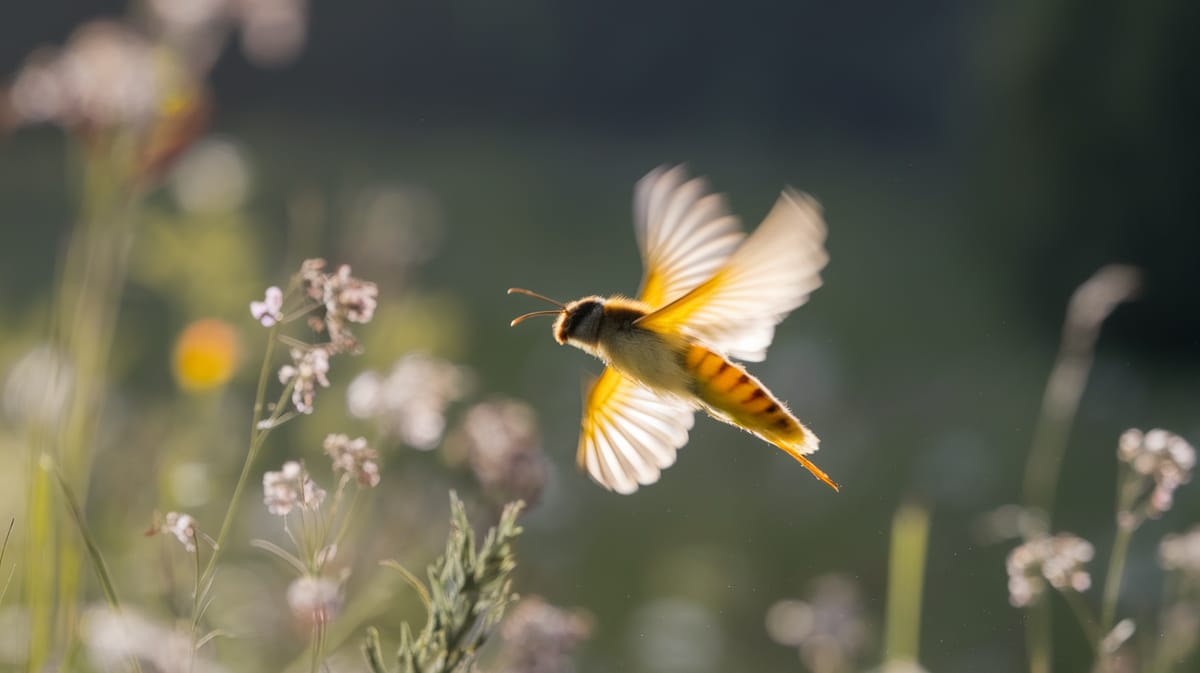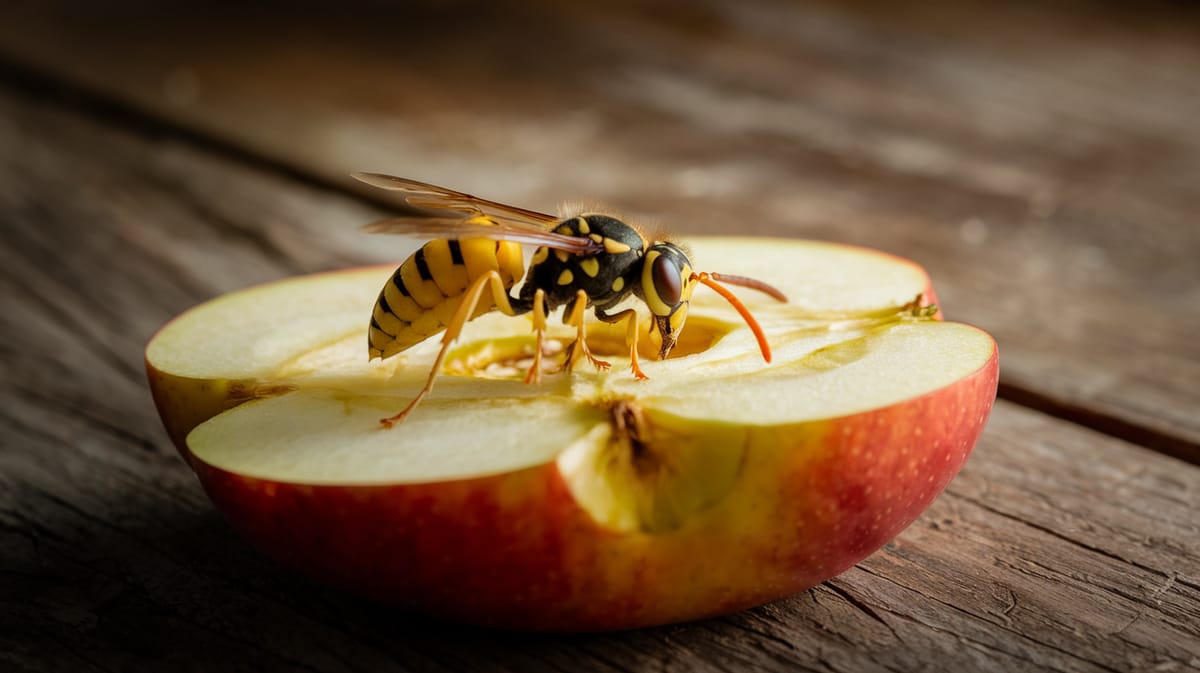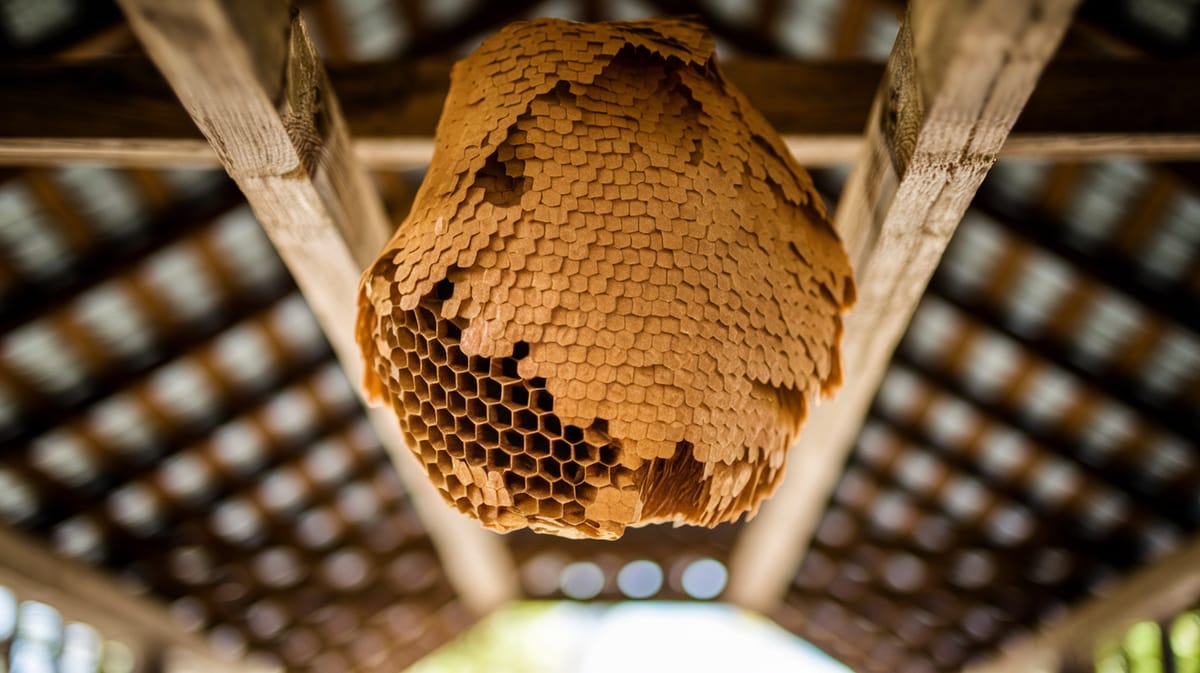Yellow Jacket
Fierce defenders of their nests, Yellow Jackets are social wasps known for their striking black and yellow bodies. They play a crucial role in controlling pest populations.

Key Insights at a Glance
Did You Know?
Taxonomy & Classification
Yellow Jackets, known for their social behavior and potent stings, play vital roles in ecosystems as both predators and pollinators. Let's understand the evolutionary journey and classification of these remarkable predators, pollinators.
Species Diversity
Yellow Jackets belong to the Vespula genus, which includes about 17 species globally, each adapted to diverse environments.
Evolutionary Adaptations
Evolving in the Eocene epoch, Yellow Jackets have developed social structures and defensive mechanisms crucial for survival and ecological success.
Lifecycle and Growth
A remarkable journey of transformation from Egg to Adult.
Egg
Laid in cells by the queen, these eggs incubate within the nest, marking the start of the Yellow Jacket's lifecycle.
Larva
Larvae consume chewed insects provided by adult workers, rapidly growing and shedding their skin multiple times.
Pupa
Enclosed in silk cocoons, pupae undergo metamorphosis, transitioning from larvae to adult wasps.
Adult
Emerging fully developed, adults contribute to colony duties like foraging, nest building, and defending the hive.
Dietary Habits
A formidable scavenger and hunter, this insect's diet includes sugary substances, insects, and opportunistic meals.
| DIET TYPE | DESCRIPTION |
|---|---|
| Primary Diet | Primarily consumes sugary foods like fruit, nectar, and human-provided sweets, often scavenging at picnics. |
| Secondary Diet | Frequently preys on other insects such as caterpillars, flies, and spiders, contributing to pest control. |
| Occasional | Occasionally feeds on carrion and small vertebrate remains, taking advantage of available food sources. |

Behaviour and Adaptations
Discover the fascinating adaptations that make the Yellow Jacket a formidable insect in its environment.
Territorial Defense
Aggressively protects its nest, deterring intruders with coordinated attacks.
Efficient Foraging
Excels in locating and gathering food from various sources.
Social Coordination
Operates within highly organized colonies with clear roles and responsibilities.
Ecosystem Impact
Yellow Jackets play a crucial role in maintaining ecological balance through pest control, pollination, and supporting biodiversity.
Natural Pest Control
Yellow Jackets hunt and consume numerous insect pests, helping to control their populations naturally.
Pollination Partner
While foraging for nectar, Yellow Jackets inadvertently pollinate various plant species, aiding in plant reproduction.
Biodiversity Supporter
As prey to birds and mammals, Yellow Jackets are vital in the food web, supporting diverse ecosystems.
Conservation Challenges
Understanding and addressing the major threats to Yellow Jacket populations.
Chemical Exposure
Pesticides disrupt Yellow Jacket colonies and food sources.
Habitat Loss
Urban development fragments Yellow Jacket nesting areas.
Climate Change
Temperature shifts affect Yellow Jacket life cycles and prey availability.
Frequently Asked Questions
How long do Yellow Jacket live?
Yellow Jackets typically live for about one year. Queens are the only members of the colony that survive the winter. Workers and males die off as cold weather approaches. New queens emerge in spring to establish new colonies.
What do Yellow Jacket eat?
Yellow Jackets are omnivorous, feeding on a variety of foods. They consume insects, fruits, and nectar. They are also attracted to human foods like sugary drinks and meats, especially in late summer and fall.
Are Yellow Jacket poisonous?
Yellow Jackets are not poisonous, but they are venomous. They can sting multiple times, injecting venom that causes pain and swelling. Some people may have allergic reactions to their stings, which can be serious and require medical attention.
Are Yellow Jacket endangered?
Yellow Jackets are not considered endangered. They are common in many regions and play a role in controlling pest populations. Their numbers can fluctuate due to environmental factors, but they are generally not at risk.
What do Yellow Jacket symbolize?
Yellow Jackets often symbolize persistence, aggression, and social organization due to their protective nature and complex colony structure. In some cultures, they are seen as symbols of caution or warning because of their painful stings.
Do Yellow Jacket bite?
Yellow Jackets do not typically bite. They are more known for their ability to sting multiple times. Their stings are used for defense and to capture prey. Biting is rare and generally not harmful to humans.
What color are Yellow Jacket?
Yellow Jackets are primarily black and yellow, with distinctive banding patterns on their bodies. This bright coloration serves as a warning to predators about their ability to sting, signaling potential danger.
Does a Yellow Jacket have wings?
Yes, Yellow Jackets have wings. They have two pairs of wings, with the front pair being larger. Their wings allow them to fly efficiently, which aids in hunting for food and defending their nests.
What does a Yellow Jacket look like?
Yellow Jackets are small, about half an inch long, with slender bodies. They have a yellow and black striped abdomen, smooth body, and narrow waist. Their faces are yellow with dark antennae, making them easily recognizable.
Is a Yellow Jacket an insect?
Yes, a Yellow Jacket is an insect. They belong to the wasp family Vespidae and are known for their aggressive behavior and social colony structure. As insects, they have three main body parts: head, thorax, and abdomen.
Related Insects
Discover insects with similar characteristics to Yellow Jacket - including shared habitats, diets, and taxonomic classifications
Share this profile
Help others discover Yellow Jacket
